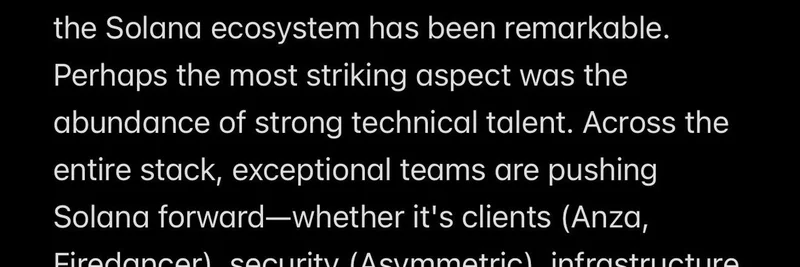In a thought-provoking thread on X, QingTheCreator_ challenges the notion that "global" in tech often equates to "Western." As a founder building in Web3 from Africa, Qing raises critical questions about the cultural biases embedded in global tech innovation and the expectations placed on African entrepreneurs.
The Bias in "Global" Tech
Qing's thread begins with a stark observation: when tech innovators talk about building for a "global" audience, they are often referring primarily to the American experience. This perspective, while not inherently malicious, creates a significant challenge for founders outside the Western context. As Qing puts it, "We are meant to build for them," implying that the default audience for global tech is not inclusive of diverse cultural experiences.
This bias is not just theoretical. Qing points out that many products, even those labeled as "global," fail to appeal to major regions outside the West, such as Africa and Asia. The expectation is that these products must be tailored to Western standards to gain acceptance, a process that often involves significant adaptation or even dilution of local cultural elements.
Cultural References and Marketing Challenges
One of the most poignant questions Qing raises is why African cultural references are not considered acceptable in marketing. This is a critical issue because it touches on the heart of identity and representation in tech. For instance, Qing asks, "Why must we westernize everything to be seen as standard?" This question highlights a deeper issue of cultural erasure, where non-Western perspectives are often sidelined or deemed less valuable.
The thread also delves into the practical implications of this bias. Qing notes that even functional products, such as a wallet, must be designed with Western aesthetics in mind to be considered viable. This requirement can be particularly burdensome for African founders, who may need to use VPNs to access certain platforms, further illustrating the lack of inclusivity in supposedly global tech ecosystems.
The Funding and Acceptance Dilemma
Another significant point Qing addresses is the funding bias. She questions why African projects are often not seen as fundable or ideal unless they align with Western standards. This is not just about aesthetics but also about how projects are perceived by investors, many of whom are based in the West. Qing's frustration is palpable when she states, "I just accept that they do not want me there," referring to the exclusionary practices that can make it difficult for African innovators to secure funding or gain acceptance.
This funding bias is compounded by the expectation that African founders must tailor their projects exactly to Western preferences, not for clarity, but for comfort. Qing's thread suggests that this comfort is often prioritized over the actual needs and innovations coming from African contexts.
A Call for Change
Qing's thread is not just a critique but also a call to action. She challenges the tech community to reconsider what "global" truly means and to include African perspectives in the innovation process. This is particularly relevant in the Web3 space, where decentralized technologies have the potential to democratize access but often fall short due to cultural biases.
The thread resonates with broader discussions in the tech industry about diversity and inclusion. For instance, initiatives like MIT Sloan's focus on African startups highlight the importance of communication, branding, and storytelling in overcoming these biases. Similarly, research on cross-cultural marketing emphasizes the need for cultural sensitivity in global strategies.
Conclusion
QingTheCreator_'s thread is a powerful reminder of the cultural biases that persist in the tech industry, particularly in the Web3 space. It challenges us to rethink what it means to build for a global audience and to ensure that African innovations are not just included but celebrated. As the tech world continues to evolve, addressing these biases will be crucial for creating a truly inclusive and diverse ecosystem.
For those interested in the full discussion, you can mint the video here and join the conversation with Qing and other thought leaders in the space.



